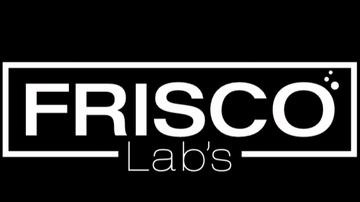With the extreme rise in delta-9 THC products derived from hemp, commonly sold online and shipped across state lines with little of the taxes or safety requirements faced by marijuana producers, has the cannabis industry bracing for tighter state and federal tax limits on intoxicating hemp products.
As Congress starts to talk about the upcoming 2023 Hemp Farm Bill and state legislatures hold annual sessions to update laws, many expect a raft of new rules in coming months about how hemp extracts can be used.
The concern comes as hemp manufacturers have responded to limits on lab-delta-8 THC products by concentrating the delta-9 THC that exists naturally in the hemp plant to produce intoxicating edibles, vapes and tinctures.
The BOOM of intoxicating hemp products can be traced to the Unexpectd Delta 8 THC market sucess, an isomer of the better-known delta-9 THC molecule created when raw cannabis is heated.
The D-8 boom took many cannabis operators by surprise.
And it prompted a growing number of hemp operators to see potential in a cannabinoid they’d previously downplayed.
In the rapidly changing cannabis industry, reliable research data is critical for making informed decisions.
Hemp extracts naturally contain delta-9 THC, though in smaller amounts than found in marijuana extracts.
Many hemp extractors remove THC from CBD products to promote CBD’s nonintoxicating effects and to attract consumers who face THC drug tests.
The delta-8 THC boom changed that approach for some.
Throughout 2021, states and marijuana advocates derided delta-8 THC products as unsafe because they’re commonly created through chemical CBD conversion without regulatory oversight.
That got folks in the hemp space wondering: Why not simply concentrate and promote the delta-9 THC that occurs naturally in hemp extracts?
After all, a 5-gram gummy could contain 15 milligrams of hemp-derived delta-9 THC and still meet federal requirements of being a legal item with no more than 0.3% THC by dry weight.
Executives saw the delta-8 THC trend as evidence that some consumers are looking for intoxication from hemp products and aren’t opposed to hemp-derived THC.
“It was always there if you looked at a COA (certificate of analysis), but it seemed like no one wanted to talk about it,
“We looked at what was happening and thought, ‘If this D-8 is so popular, we’ve got naturally occurring D-9.’ But at the time, we weren’t being forward with our marketing of it. And so it just gave us the courage to get out front and be like, ‘This is what you’re looking for, and it’s natural and legal.'”
“As soon as delta-8 (THC) started getting a lot of attention, I started noticing that CBD sales started dropping,”
“It became clear that we need to move to the real cannabinoid that everybody’s looking for, the active ingredient in marijuana, delta-9 THC. We’re able to derive that from hemp, and it’s a lot more accessible for people.”
Unwelcome competition
Of course, the accessibility isn’t embraced by many in the highly regulated marijuana space.
Many marijuana operators would love to sell products online and ship them across state lines, without the taxes and regulatory hoops commonly faced by people working with higher-THC versions of the same plant.
“It’s no surprise that full-strength cannabis operators feel competition now,”
“They thought, along with many other people, that there was a vast distinction between cannabis and hemp. And now they are coming to terms with the full understanding that hemp is cannabis.”
Fontes called the marijuana pushback understandable.
“The taxes that we see in the marijuana space are literally crushing the industry,” Pointing to California as evidence that steep marijuana taxes are keeping illicit cannabis markets alive.

Changes brewing?
The word “reasonable” is in the eye of the beholder, of course. Hemp operators making delta-9 THC seem resigned to seeing additional limits on their businesses.
Congress could wade into the matter next year when it updates the Farm Bill – the first time the agricultural law will be revised since it legalized nationwide hemp cultivation in 2018.
Any congressional action on intoxicating hemp products would be an acknowledgement that not all who backed the 2018 Farm Bill anticipated how low-THC cannabis plants could be used.



